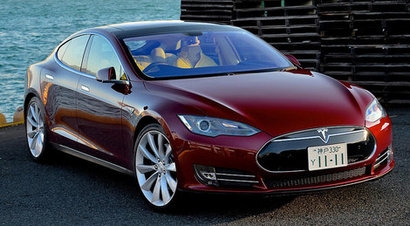
Despite a global pandemic, electric vehicle (EV) sales were up by 40 percent in 2020, with a record 3 million sales, moving our society closer to a zero-emissions future, but no manufacturer has reached the 1 million EV sales mark - yet.
Tesla is at the forefront of the electric market, with the brand doubling its global sales from 245,240 units in 2018 to 499,535 in 2020. On average, the manufacturer’s sales are increasing at a rate of 40 percent each year, according to the exponential growth trend. This means Tesla should surpass the 1 million mark first, reaching this record by April 2022.
While Tesla would reach the 1 million milestone first, Volkswagen’s electric car sales are growing at a much quicker rate. In 2018, VW sold just 51,774 electric cars globally, but this increased to a huge 220,220 by 2020.
The brand’s exponential growth rate averages at 85 percent, meaning Volkswagen should achieve over 1 million sales at the beginning of 2023, a few months after Tesla.
However, because VW’s electric car sales are increasing twice as fast as Elon Musk’s enterprise, the brand should take over by 2025. The growth rate suggests Tesla sales will reach 2,515,505 by the end of 2025, compared to 3,310,290 electric cars sold by VW.
The latest sales figures from Mercedes-Benz show that their plug-in sales quadrupled in the first quarter of 2021 and the manufacturer shows no signs of slowing down. While Mercedes sold much fewer electric cars than Tesla and VWs overall, the brand’s skyrocketing EV sales are increasing at an average rate of 109 percent each year. This means Mercedes could hit the 1 million mark just a month after VW.
If the trend continues, Mercedes could overtake both VW and Tesla by 2025 with an anticipated 4,061,359 electric sales by the end of the year - although this would be a seriously high output to keep up.
With the brand investing over 1 billion euros in global battery production, it’s not unimaginable that Mercedes could become a leader in the EV market. Three electric models are also planned for 2021 under the EQ sub-brand alongside the Mercedes EQA, EQV and EQC.
Surprisingly, while China is the world’s largest automotive manufacturer, sales figures indicate the country’s top brands won’t lead the EV market.
Based on growth trends, SAIC places 6th overall, reaching the 1 million mark halfway through 2029 and the first Chinese brand to do so. GAC follows in 7h place, hitting the million milestone in the same year but a few months after SAIC.
Lagging just outside the top 10 is BYD, expected to reach 1 million EV sales by 2037. At a growth rate of just 0.3 percent, Chery isn’t likely to reach the milestone soon. By the end of 2050, Chery could expect to sell 140,458 EVs - just 14 percent of the 1 million mark.
Even after celebrating 500,000 deliveries of the Nissan Leaf in 2020, the Japanese manufacturer might need to up its game when it comes to the EV market. Nissan’s electric car sales are on the decline, going from 96,949 in 2018 to 80,545 in 2019 and 62,029 in 2020 - an average 20 percent decrease.
Out of all manufacturers analysed, Nissan is the only manufacturer with dwindling EV sales. Although, with the recent announcement for its £1 billion Electric Vehicle Hub, it’s very possible that Nissan could turn things around.
For additional information:

